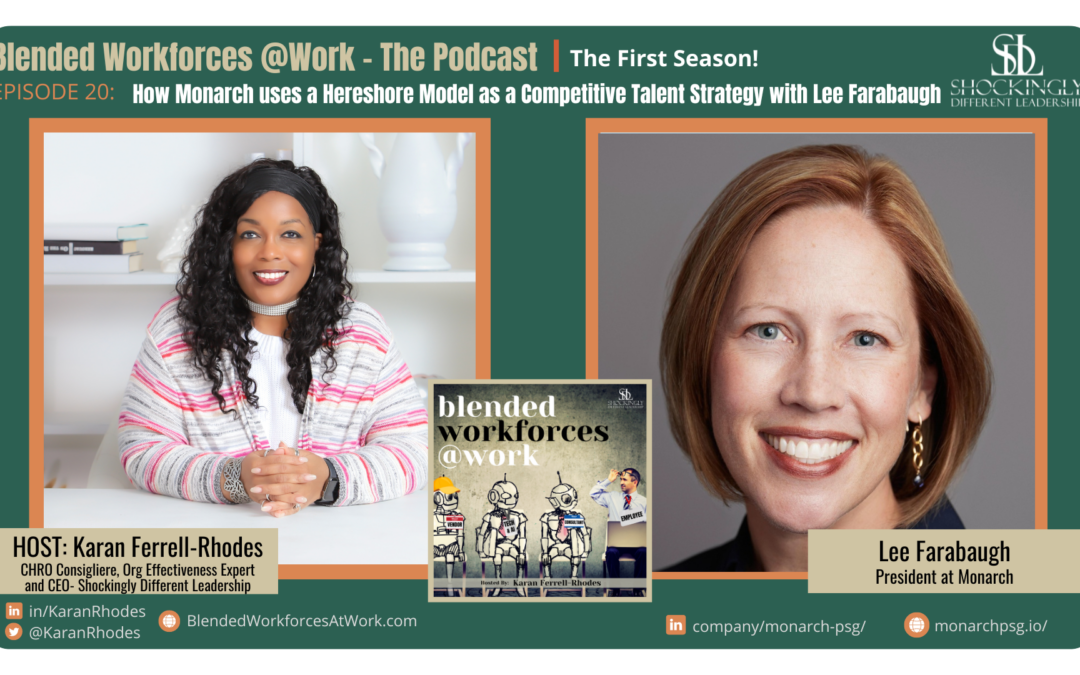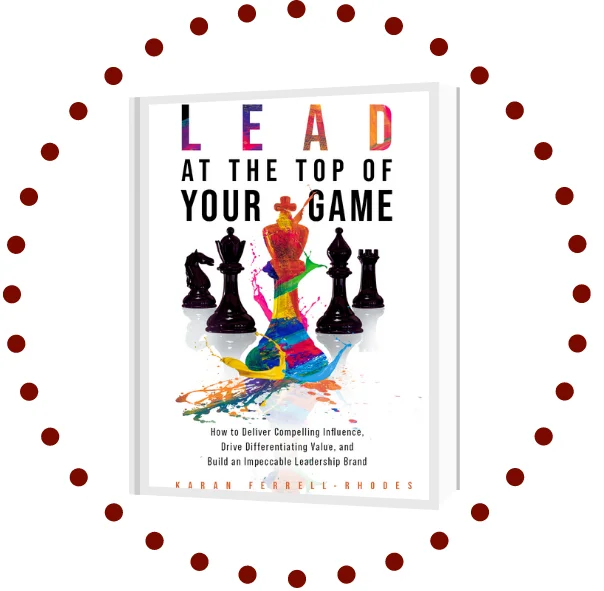IN THIS EPISODE, KARAN FERRELL-RHODES INTERVIEWS LEE FARABAUGH.
Monarch Professional Services Group seamlessly blends remote and local talent to create a dynamic workforce, harnessing expertise from small communities and global markets. Their approach not only supports diverse professional needs but also fosters innovation and adaptability, ensuring both team satisfaction and exceptional service in the niche private capital sector.
Lee Farabaugh is the co-founder and president of Monarch, where she drives operational excellence, strategic growth, and client success. With a strong background in SaaS implementation and private capital markets, she leads Monarch’s efforts to deliver top-tier technology solutions while fostering meaningful community partnerships and innovative workforce models.
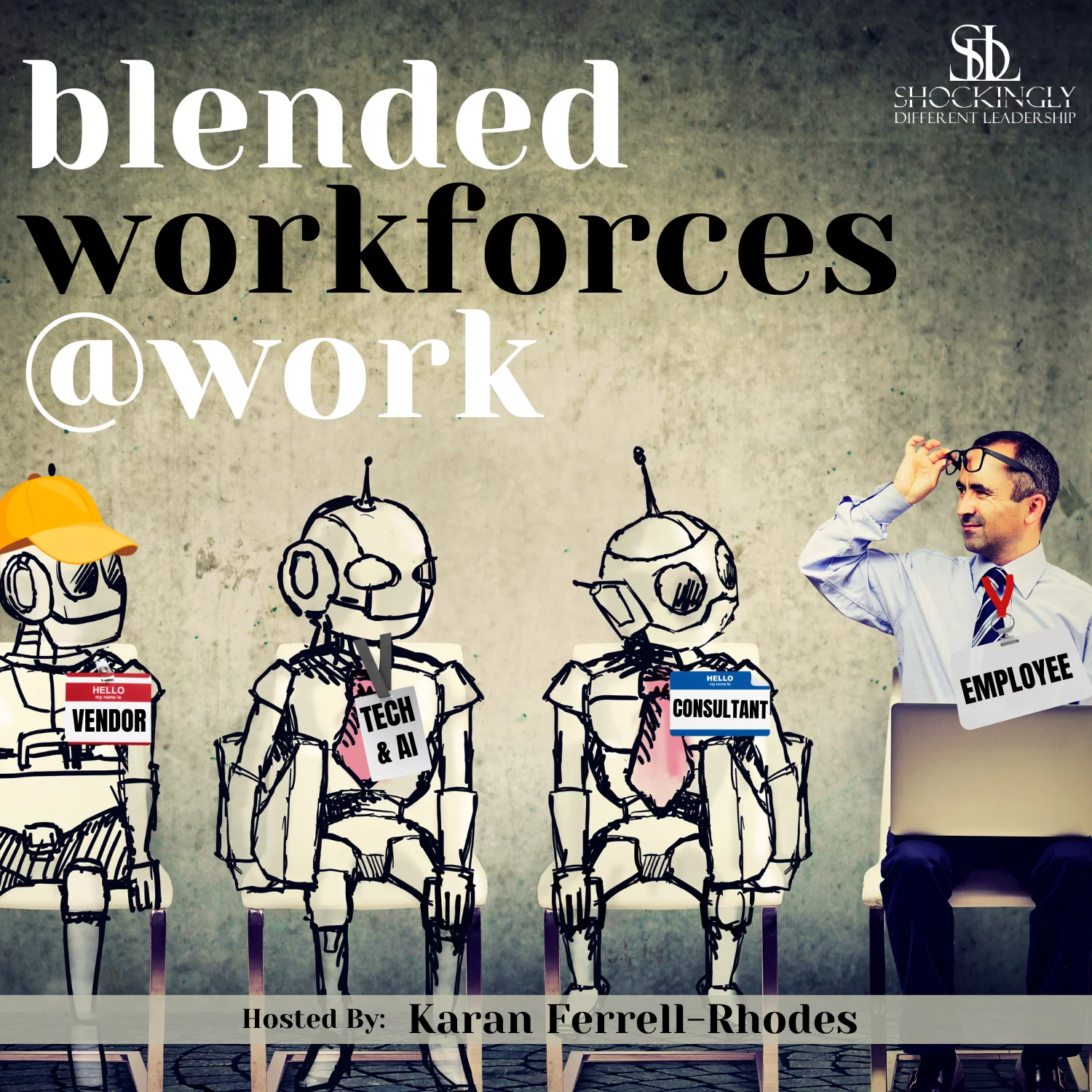
Posted by
SDL Media Team
Rather view our video podcast?
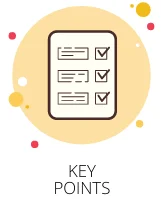
WHAT TO LISTEN FOR:
- What specialized solutions does Monarch offer in the private capital market?
- How did Monarch transition from venture backing to focusing on SaaS solutions?
- Why is Monarch’s onshore talent model beneficial for local communities?
- How does Monarch build talent pipelines through collaborations with educational institutions?
- What strategies does Monarch use to ensure effective onboarding and remote team engagement?
- How does Monarch expand partnerships and engage directly with Deal Cloud customers?
- What is Monarch’s approach to integration within its ecosystem?
“We invest really heavily in employee engagement, starting with onboarding.”
FEATURED TIMESTAMPS:
[02:47] Lee’s Personal Passions and Professional Partnerships
[04:15] An Overview of Monarch’s Expertise and Client Services
[06:05] The Evolution of Monarch and Its Focus on SaaS Solutions
[08:08] How Monarch’s Model Supports Local Communities and Clients
[11:23] Building Local Talent Pipelines
[14:09] Monarch’s Strategies for Effective Onboarding and Team Integration
[16:32] Monarch’s Role and Collaboration Within the Deal Cloud Ecosystem
[17:50] Monarch’s Approach to Part-Time and Remote Roles for Diverse Needs
[19:41] Passion and Flexibility in Niche Markets
[21:37] Expanding Partnerships and Direct Engagement
[22:38] Monarch’s Strategy for Evolving with SaaS Partners and Market Changes
[23:39] Monarch’s Growth Through Ecosystem Integration
[25:24] Signature Segment: Lee’s entry into the LATTOYG Playbook: Staying Agile and Creative
[28:20] Signature Segment: Lee’s LATTOYG Tactic of Choice: Leading with Intellectual Horsepower
[30:22] Where to Find Monarch Online
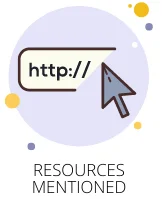
ABOUT LEE FARABAUGH:
Lee Farabaugh is the co-founder and president of Monarch Professional Services Group (Monarch), a new division of Core10 that provides implementation and customer success services for leading financial service CRM and SaaS platforms. Lee oversees operations, service delivery, community relations, business development, sales, strategic account management, and marketing.
Lee was appointed Co-Entrepreneur in Residence for Project Fintech, an initiative of LaunchTN and Nashville Entrepreneur Center. Outside of Monarch, she was actively involved with non-profit partners to create NewForce, a software development boot camp in West Virginia.
LINKS FOR LEE:
- Website: monarchpsg.io/
- LinkedIn: linkedin.com/company/monarch-psg/
ADDITIONAL RESOURCES FOR YOU:
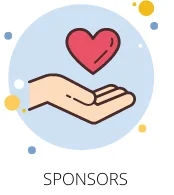
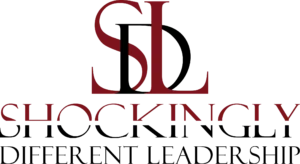
Episode Sponsor
SDL is the go-to firm companies trust when needing to:
- supplement their in-house HR teams with contract or interim HR experts
- implement leadership development programs that demonstrate an immediate ROI and impact on the business
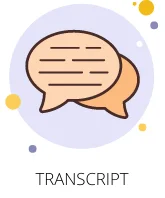
Episode 20 | How Monarch uses a Hereshore Model as a Competitive Talent Strategy with Lee Farabaugh
Lee Farabaugh 00:00
And the private capital markets customer is a high touch customer. They expect you to understand how their business works, and so our team really rises to the occasion to learn how their business works, to treat them the way they expect to be treated. You know, I think that’s a really fun and interesting and compelling aspect of what they’re doing.
Karan Rhodes 00:03
Blended workforces are one of the hottest talent strategies today, where employers are using a mix of traditional employees with external resources like independent contractors, coaches, consultants, vendors, and technology solutions, all in order to enhance competitiveness, ensure cost flexibility, and expedite business goals. But how are the successful companies infusing blended workforces into their business strategy? And what are the critical success factors and pitfalls to avoid during implementation? And on the flip side, what does it really take for suppliers to improve their chances of finding and landing contract opportunities? The devil is in the details, my friends! I’m your host, Karan Ferrell Rhodes, and it’s time to get smarter about Blended Workforces at Work! Hi there, my superstars out there. This is Karan, and welcome to another episode of the blended workforces at work podcast. We are super excited that you’ve joined us for another fabulous episode, and it’s a good one to tune into, because boy, do we have a fantastic guest today. I’m so happy to feature on today’s show Ms Lee Farabaugh play, I got that right. Farabah, who is the co founder and president of Monarch Professional Services Group, and they are a firm that provides implementation and Customer Success Services for leading financial service CRM and software as a solution platforms. I love this because I came from the tech world, so I’m super excited to talk to her about how she helps support their clients. But in her role, Lee oversees operations, service delivery, community relations, business development, sales, strategic, account management and marketing, and with all those responsibilities, I don’t know how she gets up every day, because I would be dead tired at the end of the day, but welcome to the show, Lee.
Lee Farabaugh 01:59
Thank you. I’m so glad to be here.
Karan Rhodes 02:01
Oh, we’re so honored to have you definitely, you know, I cannot wait to dig into how Monarch kind of supports the blended workforces model for companies, because you all are an outsource provider of a lot of services. So we’re talking from the vendor supplier realm today. But before we do that. We always love to learn just a tad about our gifts. So just for as much as you feel comfortable, would you mind giving us a sneak peek into your life outside of work?
Lee Farabaugh 02:28
Yeah, so outside of work, I live in Nashville, Tennessee. I’m actually a little suburb of Nashville called Franklin,
Karan Rhodes 02:34
Okay…
Lee Farabaugh 02:35
And I have a 10 year old son. I’m married. I hope you have a 10 year old, and he’s very into soccer and science technology, and we go to a lot of soccer games. Sorry, there’s a little bug flying around me. We go to a lot of soccer games. And my husband and I both love cycling. We do a lot of riding, bike riding outside. So yeah, that’s me outside of work.
Karan Rhodes 02:57
So you have an active life at work and an active life outside of work as well. It sounds like
Lee Farabaugh 03:01
Yeah, and I do have to say, you know, you rattled off all those things I do, but I have an amazing team at Monarch, and I have a really fantastic I consider him my partner in building this business, a gentleman named Anthony Alexander, who runs operations and delivery, and this would not be possible without him. So, you know, every day we get up and work together to make monarch what it is.
Karan Rhodes 03:23
Oh, fantastic. Well, kudos to, was it Anthony? As well for you all’s partnership and building and growing the business and actually providing a lot of support for customers that really need the gifts that you all are able to bring. So it’s wonderful. So I know I just kind of read off an overview of Monarch, but I really want to bring it to life. So if you don’t mind, let’s start by sharing just a bit more about what marnik is and how they service their clients.
Lee Farabaugh 03:27
Anthony, yep, Yes, so we work exclusively in the private capital market space that would be private equity, venture capital, family office, investment bank, and we work specifically with those customers as it relates to their technology, and even more specifically, mostly along their CRM and those types of softwares that they use to run their business. And those types of firms typically use a CRM, both for deal flow and for fundraising. And so we are experts in a couple of platforms. One is called Deal Cloud. It’s part of the Intap suite of products Intap Deal Cloud. And the other is Pendo, which is, I call that one, Google Analytics for your SaaS platform. It shows you how your customers are using your technology, and we have focused really exclusively on those two platforms, diving in and supporting those customers, both at the customer level, like the deal cloud and Pindo level, but also their customers, working directly with some of their customers.
Karan Rhodes 05:00
Oh, amazing. And those are two separate platforms, right? Or
Lee Farabaugh 05:04
that’s correct that they often work in tandem with each other.
Karan Rhodes 05:07
That’s what I was gonna ask,
Lee Farabaugh 05:08
yeah,
Karan Rhodes 05:08
Do they work in tandem together.
Lee Farabaugh 05:10
They do.
Karan Rhodes 05:10
That’s a whole nother world when the technology is not talking to each other. You know, you’re trying to maximize workflows. That could be a challenge, but that’s good to hear that they do work well together.
Lee Farabaugh 05:22
Yep. They do
Karan Rhodes 05:23
Amazing.
Lee Farabaugh 05:23
Yeah.
Karan Rhodes 05:24
So why did you and your co partner workers decide to focus on the financial services and private equity sector? And I’m I’m curious, because with even our company, SDL, now we are on the human capital side, but we focus a lot in private equity as well.
Lee Farabaugh 05:31
Yeah. Saw that. Yes, yes.
Karan Rhodes 05:42
Curious, how did you get into that world?
Lee Farabaugh 05:45
Yeah,
Karan Rhodes 05:45
It’s a small word, believe it or not,
Lee Farabaugh 05:47
Yep, so monarch is actually a part of a larger company, and the reason that we created Monarch was because we’ve been doing this work, really, since August of 2018 working with these SaaS platforms that focus on the private capital markets, and we the business had just grown so much since that time, over the past six years, and we realized it was time to really, truly focus on this as its own entity. Lean into sales, lean into marketing, lean into developing our team. But the origin story is that we’re actually a venture backed company, and so our VC came in one day and said, Hey, could you use your model of services delivery for this other company in my portfolio called deal cloud? And when your VC asks you a question like that, the only answer is yes. So we can do that. And you know, it was, it was a learning curve. We had to learn because we had been doing software development and implementation of a SaaS platform is very different than building an application. So we had a little bit to learn about who was the right employee fit. And, you know what? What could we truly deliver with excellence? And we had a lot to learn, but we did figure it out, and now we can honestly say we’re experts in providing those services related to customer onboarding, implementation and managed services projects, and so honestly, some of it was a bit accidental, but it’s been an incredible journey for us and a fantastic area to lean into.
Karan Rhodes 07:16
This is amazing. You’re right. When your VC says, Can you? You say yes, and then you go back and huddle and see, okay, how do we do it?
Lee Farabaugh 07:25
Exactly? Exactly. Yes. It’s like the duck, you know, your new surface and your little feet are just paddling down below to make it work, yeah.
Karan Rhodes 07:33
Absolutely. So let’s talk about, you know, a particular aspect of blended workforces that people don’t hear every day, but it is a common philosophy. I’d love to hear your thoughts on the hereshore Philosophy, yes, sourcing great talent. Yeah.
Lee Farabaugh 07:50
So here, sure is this concept that we, we actually have the registered trademark for that word Hereshore, but we’re not the first people.
Karan Rhodes 07:59
Do you?
Lee Farabaugh 07:59
Yeah, it’s kind of something…
Karan Rhodes 08:00
I’ve heard of it before, though.
Lee Farabaugh 08:02
Yeah, well, we’ve, we’ve had it since like 2016 or 17, so we’ve had it for a while, and we have our little plaque up in our office. We think it’s fun, but it’s the concept of delivering technology expertise from the US primarily, but not exclusively for US based customers, but the idea that we do all of our work on shore here in the United States. And the concept was born really, from this hot us tech market where the rates for us talent in the large metro areas were driving customers to seek offshore talent as a way to curb expenses. And there’s definitely a place for offshore talent, and it accomplishes good things. And we’re definitely not anti offshore talent. But we also found that there were some areas where being able to work with a US based team was really helpful a lot of times, in the financial markets, especially in banking or in private capital, it’s, it’s imperative because of security reasons. So what we decided to do was go further afield. Okay, it’s it’s too expensive in the big cities, but what if we went into some smaller communities and we hired team members there? What we found is that people in these smaller communities are often also highly educated, just like people are in big cities, but they want to have a fulfilling career in the place they call home, so our model allows them to stay in that place, earn a competitive salary, enrich their community, and ultimately, what we’re driving towards is them being able to create generational wealth that will benefit their families for years to come. And it’s really a win, win because the employee wins. They’re making great money. They’re where they want to be. The customers win because happy employees stay longer, so our customers can have team members working on their projects for years. And we’re happy because our everybody in our ecosystem is happy. Our employees are happy, and our customers are happy.
Karan Rhodes 09:53
I love that, and I can only imagine that it’s improved even more post pandemic times, right? Because people are… or no?
Lee Farabaugh 10:02
Yeah…well it’s interesting that you asked that, because, in some ways, the pandemic kind of turned its on. It turned it on its head in that now, you know, people can work from anywhere, right? But what I a couple of things happened. I think it sent people back to some smaller communities where they had always, you know, felt like, well, I can’t have the job I want and stay in this smaller community where I grew up. Now, they’re saying, Well, yes, I can. But also the communities where we’re in, you know, when we saw people moving out of big, big cities like San Francisco and New York and Chicago, they weren’t moving to cities as small as where we are. They were probably moving to the Charlottes or the Nashville’s Austin. Yeah, exactly. So we’re in, like, one of our biggest concentrations of team members is in Huntington, West Virginia, and so that is a really small community, you know, about 50,000 people. So we’re in smaller places, I think that didn’t see that big exodus from the large cities.
Karan Rhodes 10:57
And are you still able to find the talent with the type of skills that you need, even in those small communities, is it hard to find them?
Lee Farabaugh 11:05
It’s harder, but it’s not impossible. It just takes a little more elbow grease and legwork. So we have a couple of ways we do that. One is that we’ve built really strong partnerships with the higher education organizations in those areas. So for example, in Huntington Marshall University, elsewhere in the state, is West Virginia University. There’s a number of community colleges in West Virginia that are incredibly strong, especially in technology. And so we’ve just partnered with those organizations. They know that we provide jobs. And so, you know, when new grads are coming out, you know, they let us know, hey, we’ve got a great craft of grads. You know, you should talk to you. And then we’ve been so fortunate in the state of West Virginia, they’ve been incredibly supportive of us and really invested in us in many ways, as much as we’ve invested in them. And we work together with a nonprofit in West Virginia called Generation West Virginia, and also with the Community and Technical College System in West Virginia, and we stood up a software development boot camp in Huntington. Now it’s all virtual that there’s another pandemic turn of events, but it’s based on the same curriculum that’s used in a very successful boot camp in Nashville, and they gave us an in kind gift of allowing us to use that curriculum. And so interestingly, a lot of our monarch team members come out of that boot camp. They really find that they enjoy technology, but they may not necessarily want to be developers, but they want to work really closely with it. And so all of that put together has created a strong talent pipeline for us.
Karan Rhodes 12:38
It’s amazing. Well, congratulations on your success thus far. I’m sure it’s gonna be supercharged even more in the future, but what a great philosophy to kind of help support economic impact here at home as well as abroad. So that is such a cool embracement. Well, I’d love to talk to you a little bit also about how monarch interacts with the clients that you serve as well, and particularly, you know, especially for my entrepreneurs out there, is as well as, you know, just because you did well. And, you know, corporate America, or, you know, whatever job you had before, if you had a job before, you worked in a smaller firm, or what have you that is on the supplier side of things. It doesn’t mean that you instantly know how to interact when your supplier vendor side versus when you were working in that company itself. So I’m curious, are there things that you all do to better on board your team members into a company, how do you ensure that there are good communications and workflow that are going on between you and the clients that you serve?
Lee Farabaugh 13:50
Yeah, that’s a great question, and I think that’s an even more important question today than it ever has been, because we’re 100% remote. I’m sure a lot of your listeners are also the same. So, you know, we we invest really heavily in employee engagement, and it starts with onboarding, like you just said, in the recruiting and hiring process, in the pre day one process, ensuring that we’ve got a lot of communication that they know how excited we are to have them join. And then once they’re on board. We follow up with them, you know, at quick succession, in their first few weeks. There’s training that we’ve put together for the platforms that we work with, and we also use our customers training. When people start with us, they have a buddy and that they can pretty much ask anything they you know, question that they have, they can ask their buddy, I do a new hire call once a month for anybody who’s joined. We just hop on and we just kind of, I give them a little quick overview of Monarch, but they’ve heard all that. It’s more just get to know you and ask me questions that you know they might have a question about. And then we do monthly town hall meetings, and we’re very transparent. Current in terms of how’s the company performing, what does revenue look like? Are we hitting our targets? Are we where we want to be? In terms of how many team members we have, what kind of deals are in the pipeline? What Are we closing? Because I think the more they understand about how the business is truly functioning, the more secure they feel in their job,
Karan Rhodes 15:18
And the more invested they become. It increases their buy in, right?
Lee Farabaugh 15:22
Absolutely, absolutely. And then we, you know, we have regular touch bases with managers, you know, we do all those types of things, you know, that are good, best practices. And then with our customers, our team members are working directly with our customers. A lot of times our customer team, it’s really blurry. Where the monarch team starts. You know, they sort of feel like the monarch team is part of their company. But then we also want our monarch team to feel like they’re part of Monarch so that’s the balance that you have to tread, you know, carefully to make sure that everybody’s getting their needs met. The customer really feels like our team is invested, but our team feels like, you know, hey, there’s a group that has my back if I need something
Karan Rhodes 16:01
Absolutely now, because I’m not as familiar with your niche service. Who is? Are there any main competitors that do what you’re doing with these platforms?
Lee Farabaugh 16:13
So we honestly like to think of them as partners, because it is such a small ecosystem. So within Intap Deal Cloud, and within the larger Intap ecosystem, there are a number of partners. We’re a bit unique in that space, because we started out working in house at Deal Cloud, and we’ve done over 1500 projects, I mean, vastly more than anyone else,
Karan Rhodes 16:36
Amazing!
Lee Farabaugh 16:37
Except for Deal Cloud. So we, you know, we’re a bit different of a partner because we started out that way, but there are other deal called partners that we work together with whether they may have a question about something that’s an area of the business they haven’t worked on before, and they want our team to help, or they’re short staffed, and they need to bring somebody in. So we do work very closely together with the other partners, and we go to the partner meeting once a year, and, you know, get to know each other better. And so it’s a really small world where we are. Yeah,
Karan Rhodes 17:09
I’ve been there. I’ve definitely been. Now, because you’re a vendor partner, if you will, for your clients. I’m curious, do you yourself? Do you all employ a blended workforces model? Do you ever use contractors or freelancers for any work? Or do you mostly focus on your full time employees?
Lee Farabaugh 17:31
The majority is full time, the vast majority, we do have a couple of projects where they’re not full time projects, so we work with a company where we provide, well, that company provides access for a VC or a PE firm to see metrics across their entire portfolio all rolled into one dashboard. And that company uses our team to co collate and coalesce all of that data that the various portfolio companies send in. I mean, it could be a PowerPoint, it could be an Excel, it could be a PDF. All this data comes in all different ways, and so they use our team to package all that up and get it into the platform. And that is a, you know, probably 20 hour a week job, and we were talking before the podcast started about mom life. So we have some part time employees who are moms, and they love this job, because it’s the information comes in and we have an SLA, but they can pick it up when they have a break in their day. They can work on it first thing in the morning, when the kids go off to school, they can work on it in the evening, when everyone’s in bed. But it’s a great, you know, it’s just a great project for that. It’s a great fit for that group. So we do that. You know, we definitely support that. And I’ve ever since becoming a mom 10 years ago. I definitely know how important it is to have different kinds of options for different people at different stages, because a lot of times, especially moms, they want to stay active, but they don’t have 40 hours a week. So I love that we can support that.
Karan Rhodes 19:03
Oh, and I love that you do that is amazing. So in your opinion, Lee, you know, as a leader of a firm such as monarch, can you give us a couple of positives on being on the supplier side of the house for companies, and maybe a couple of challenges as well, if you don’t mind.
Lee Farabaugh 19:22
Yeah, well, I think the positives, I mean our team and myself, personally, we love this industry. It is super niche, but we love it, and I think that’s one of the reasons that our team is so excited about what they’re doing, is they really love learning the private capital markets industry, and the private capital markets customer is a high touch customer. They expect you to understand how their business works, and so our team really rises to the occasion to learn how their business works, to treat them the way they expect to be treated. I think that’s a really fun and interesting income. Telling aspect of what they’re doing. And then I think the other thing that’s very positive is that, while we love our team members to stay with a customer for a long time, because that’s one of the reasons they hire us, we do have flexibility. And we’ve had, you know, we’ve had a team member go from deal cloud to Pindo, and so we’ve had people, you know, sort of move around as they either they gain a new skill or they’re ready for something different. So if you’re a services company like ours, there’s multiple different projects and clients to work on. So I think people really like that too, in terms of the negatives, you know, we’re a services provider, so we are dependent on our customer wanting us to do the thing that they’ve asked us to do. And you know, if they have a rough quarter or a rough half of the year, you know, we feel that that’s okay. We’re in it to win it with them, and we all figure it out and work together. And we have incredible, you know, the teams that we work with our customer teams are amazing. But, you know, that’s a hard thing. But I think no matter what you’re in, you have to, there’s ebbs and flows in the market. So that’s just, you know, part of it,
Karan Rhodes 21:01
It is definitely and do most of your clients come to you, or do you have an active team that I know you have a sales team, but do you have an active team that is sourcing new clients as well, trying to keep more in the pipeline?
Lee Farabaugh 21:18
Yeah. So it’s kind of interesting for us, because we really focus on these two platforms that we already have deep relationships with, but deal cloud side, our partnership has matured over the past year, I would say, and we’re branching out to be able to work directly with some of these customers that use deal cloud. And so that would be directly with the PE firm or the family office or the investment bank, and so we do have an active sales and marketing engine that is sharing our expertise with the world packaging offerings for these customers, making sure that we’re reaching them at the point that where they might need our type of help, and also working really closely with our Deal Cloud team to make sure that we’re fitting in in the right way, because we don’t want to compete, we want to support,
Karan Rhodes 22:06
Yeah, definitely, definitely. And with you all having such a niche focus, what are some of Marx goals and aspirations for the future? I mean, how do you plan for growth when your world is so niche?
Lee Farabaugh 22:19
Yeah, now that’s a great question, and I think a lot of it is is almost like a history lesson. So I mentioned before, you know, our VC comes in. Hey, can you do this? And we just got really lucky. We got in working with deal cloud early days, so we were the first partner, and what we’ve learned is that there is a natural journey that these SaaS companies take from early days to maybe an acquisition to an IPO, and the nature of the partnership changes how they want us to work with them, how we need to work with them. And so what we have learned is how to how to ride this wave with them. And so that is, you know, how I see us growing is, is as our partner, as our customers, grow, we grow our team, and we grow the different ways we can serve their customer base.
Karan Rhodes 23:10
Interesting. Do you think that you will ever expand your niche? Are you committed just to staying in the private equity, if you will, space?
Lee Farabaugh 23:21
Yeah, I think we’re committed to that space. But what is, I think, an opportunity, is that these platforms that we work with, they have other integrations, let’s say that they work with other companies, and so we help them integrate other software into theirs. And what’s happened before, so we, you know, hope it’ll happen again. As those companies look at what we’re doing, say for deal cloud or Pindo, and they go, Wow, you’re doing such a great job for them. Why don’t you come do that for us? And so we’re staying in the same ecosystem, but we’re growing our reach, you know, across a broad variety of software platforms that support this private capital markets niche.
Karan Rhodes 24:02
Interesting, yeah, is most, are most of your clients and business in the US? Or is it global?
Lee Farabaugh 24:08
It’s global, actually. So that’s kind of interesting, because most of what we serve is US based customers. But for example, we have some team members and the West Coast that support Australia because the time zone is not too far off. The team members are flexible in such a way that then they can support, you know, that audience. But we’re definitely, you know, able and open to support any geography that is interested in, and having us support them
Karan Rhodes 24:37
Amazing. And that’s what kind of the plus of having a blended workforce, where you can adapt based on time zone locations and the flexibility of when work gets done, having those alternatives helps empower your ability to service your clients versus impede, it’s absolutely fantastic.
Lee Farabaugh 24:59
Yeah,
Karan Rhodes 25:00
And I’m just curious, as a as one of the leaders of Monarch, what keeps you up at night?
Lee Farabaugh 25:05
Oh, gosh. Well, I mean, I would say our team making sure that they’re happy, that their questions are answered, that they understand how the business works and how it can work for them. You know, that’s something that I think about a lot. And how do I, you know, I, often times am working on the business, and they’re working in the business. And how do I make sure that everything I’m seeing from where I sit is communicated to them in the most effective way possible, so that, you know, definitely there. And then, you know, I think about our end customers and their market. You know, what are the global economic trends that are affecting their market? You know, we’ve seen a lot of volatility in the market over the past four years, and we’ve seen, yeah, investment dollars ebbing and flowing. And you know, that affects our customers. So, you know, I think about that too. I can’t control the global investment market,
Karan Rhodes 26:03
Yeah, but you can keep track of it and be agile, and be able to try to think about how you can best pivot or adjust if need be.
Lee Farabaugh 26:13
That’s right, that’s right. And we can think about, how can we be creative with our customers when they come to us and say, Okay, we’ve seen this impact over here, you know, or we need you to pivot with us, you know. How can we bring some interesting ideas to the table that they maybe haven’t thought of? So, absolutely, yeah, control the controllables, right?
Karan Rhodes 26:35
That’s right. That’s all we can do, Lee, is control the controllables and yeah, be agile once things get thrown our way, you know that we didn’t see coming? Yeah. Well, gosh Lee, I can’t believe it’s time to wrap up. But before we do this, we always would love to ask our guests our signature question. You know, we’re all leaders in our own right. No matter what we do, leaders at all levels. I’d like to say, and you know, I wrote a book about leadership execution, and what are the areas that you need to focus on when you’re deep in the moment of you know, or leading or doing what, what project initiative that is assigned to you and and so out of the seven buckets that we write about that came out of our Research, you’re so kind to share that leading with intellectual horsepower really resonate with you, and for some of my newer listeners out there, leading with the intellectual horsepower is all about using your areas of expertise that you already have, either innate or by years of experience and Learning, just to what we call peek around corners, observe trends and kind of think maybe even catch opportunities that others miss. It’s all about using your own area of expertise to find value in contributing to others. So curious minds want to know. Lee, why did intellectual horsepower really resonate with you?
Lee Farabaugh 28:00
Yeah. So here’s a fun fact about me. I have an undergraduate degree in Fine Arts. I studied oil painting, which is a little
Karan Rhodes 28:09
Oh, interesting!
Lee Farabaugh 28:10
It’s a little random, when you think that I work in a software oriented business and private capital markets, you’re thinking, what did you learn in fine arts that you know would help you there? But I will say that I think that gives me an interesting perspective on things to in art and design. We often talk about solving design problems, but that is what the whole world is. Business is just a set of design problems too. And so I love to think about putting that methodology, and it kind of a, how might we growth oriented line of thinking around solving these problems? And it could be everything from, you know, how do we handle employee compensation increases in a year where revenues are down to how do we support a new feature set that our client is rolling out in a in a novel way. I think that having that design thinking and design problem solving mentality has really been helpful for me personally in that space. And I love this idea of intellectual horsepower, because it always says to me that means you’re always learning, you’re always growing, you’re always, you know, picking up new ideas, and you’re always listening to other people because they have really interesting perspectives. So that’s why that one really spoke to me.
Karan Rhodes 29:28
Oh, that really resonated with me, that example that you gave. So thank you so much for sharing. I really appreciate it. Well, I know we are wrapped up on time, but you know, we’ll all we’ll definitely have information, more information about your bio and background in the show notes and links for monarch and a lot of other things. So I encourage my listeners out there to check the show notes as well. But I always love to give our guests time, air time, to also share where to find you all. So we if someone wanted to learn more. About monarch or you? Oh, where can they find you?
Lee Farabaugh 30:02
Yeah, so you can find us online at MonarchPSG, that stands for professional services group monarchPsg.io. We’re on LinkedIn. We’re on Instagram, and you can find me on LinkedIn as well.
Karan Rhodes 30:16
Fantastic. Well, Lee, thank you again. So much for the gift of your time. It was really fun learning about monarch. And you know how you’re servicing your niche, niche clients. I should say it is a niche area of the world, but it is very much needed. And this was absolutely a lesson in partnerships, collaboration. And you know what can be done? When the VC says, Can you do the X? And you say, yes, right,
Lee Farabaugh 30:44
That’s right. That’s right.
Karan Rhodes 30:46
Oh, well, thank you again for joining us on this episode.
Lee Farabaugh 30:49
Thank you, Karan, it was my pleasure.
Karan Rhodes 30:50
Awesome. And thank you to listeners for the gift of your time as well. We know there are literally millions of other podcasts out there, and we don’t take your patronage for granted at all. We hope that you continue to follow us every week. Please be sure to like and subscribe the podcast, and all we ask is that you share with just one friend, so by doing so we can all get smarter about blended war forces at work. Thanks a ton. And see you next week. Take care. Well, that’s our show for today. Thank you again for listening to the Blended Workforces at Work podcast. You can check out the show notes, additional episodes, bonus resources, and also submit guest recommendations on our website at blendedworkforces@work.com. You can also follow me on Twitter, LinkedIn, Instagram or YouTube by searching for the name Karan Rhodes with Karan being spelled K a r a n. And if you like the show, the greatest gift you can give would be to subscribe and leave a rating on your favorite podcast platform of choice. This podcast has been a production of Shockingly Different Leadership, a global consultancy which helps organizations execute their people, talent development, and organizational effectiveness initiatives on an on-demand, contract, fractional, or project basis. Huge thanks to the SDL production and editing team for a job well done. Bye for now.

Want to be a Podcast Guest?
Check out our guest qualifications and submit our brief form to be considered.
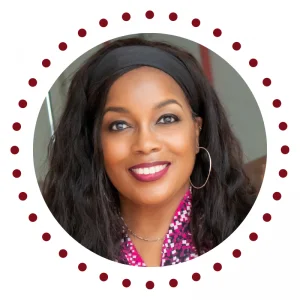
Want Karan to be Your Podcast Guest?
- Blended Workforces & the Gig Economy
- Critical Execution Tactics of High-performing Leaders
- Entrepreneurism & Leading Your Business
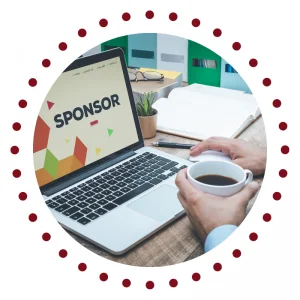
Want to be a Podcast Sponsor?
All sponsorships come with a featured spot on show notes pages.
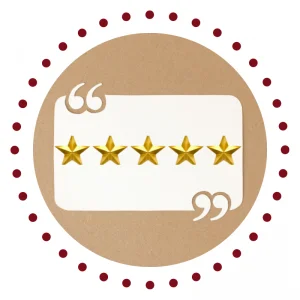
Like the Show? Please Leave a Review
If you like the show, it would mean the world to her if you left a quick review.
Your word is golden, so a HUGE thank you in advance!
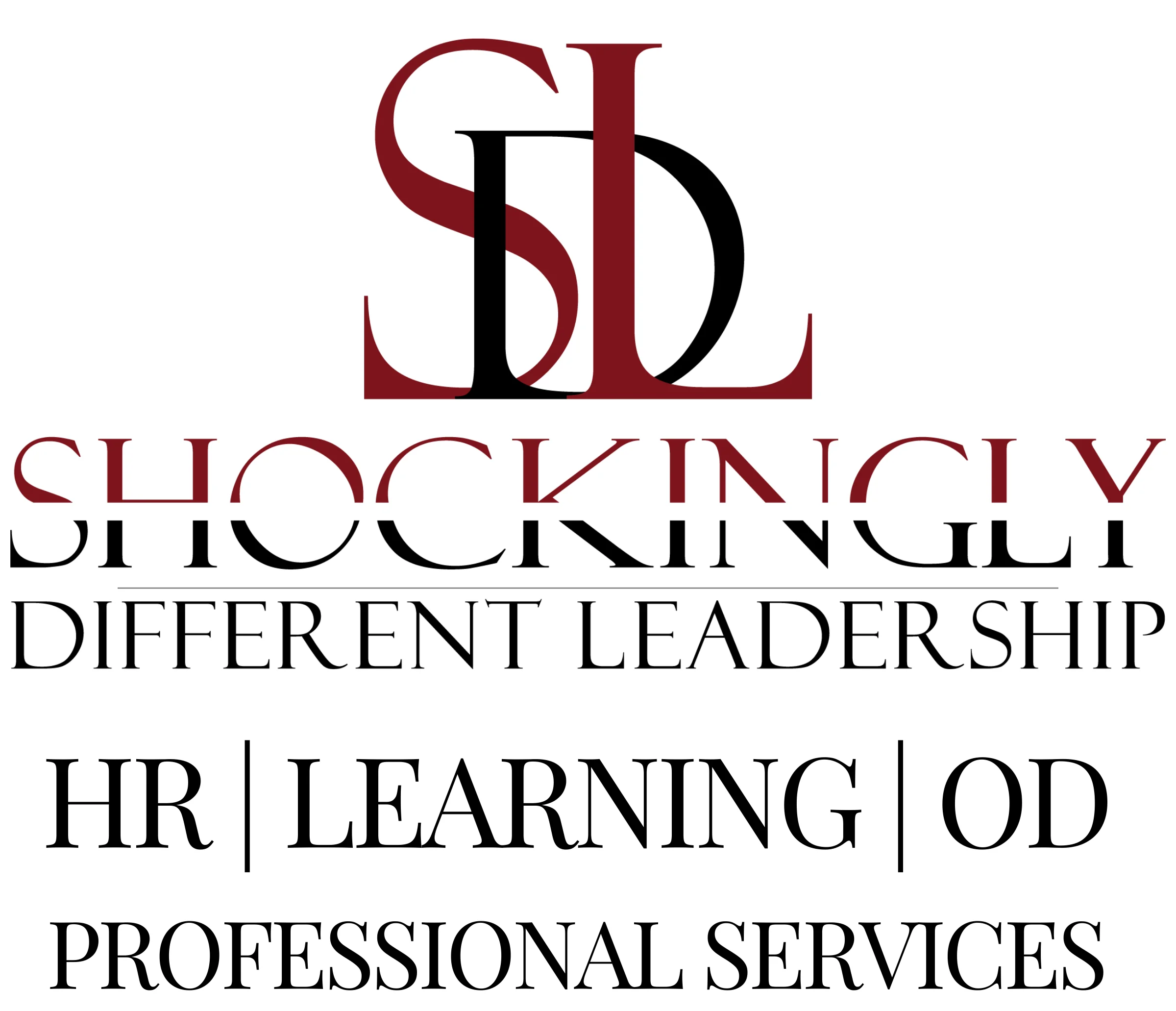
#KeepInTouch
via our podcast alerts
Subscribe now to discover why thousands of monthly listeners who are passionate about doing their best work prioritize time each week to listen to the Blended Workforces @Work podcast.
#AboutSDL
#WhereToFindUs
MAILING
4480-H South Cobb Drive
PMB 219
Smyrna, GA 30080
PHYSICAL
2121 NewMarket Parkway
Ste. 108
Marietta, GA 30067
#ContactOptions
Customer Service Email:
service@shockinglydifferent.com
Call or Text:
770-384-1103
#Office Hours
MON-FRI
8:30 AM – 6:30 PM
Weekends By Appointment

